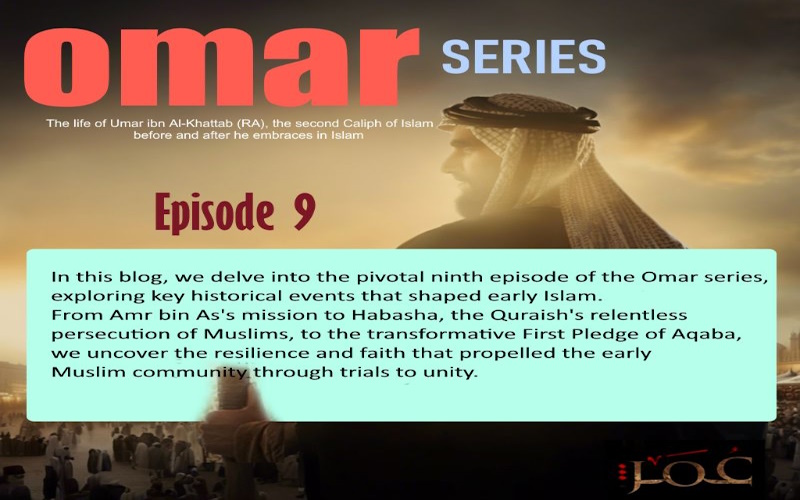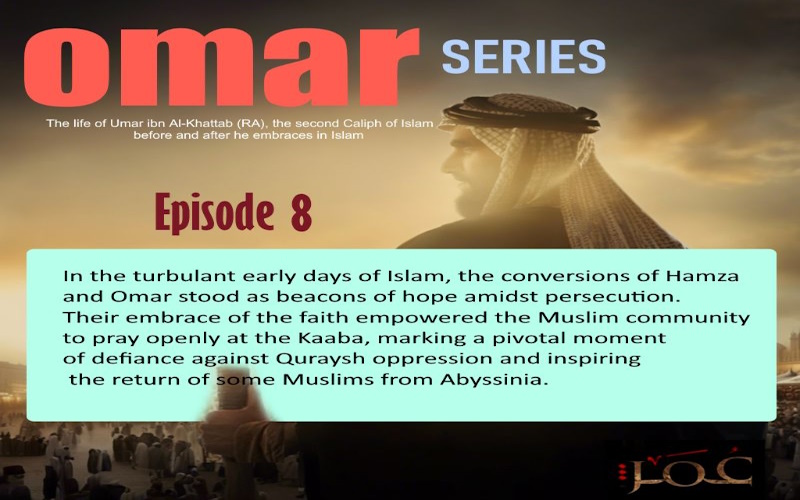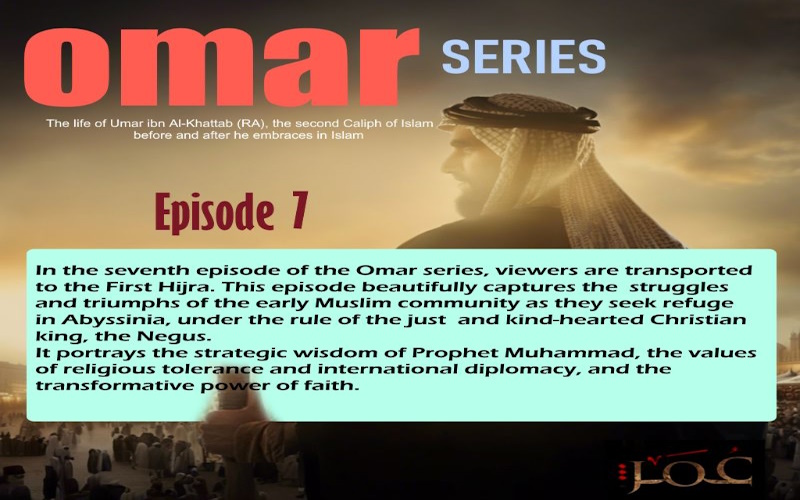In a significant chapter of Islamic history, the early migration of Muslims from Mecca to Abyssinia, known as the First Hijra, unfolds a narrative of struggle, faith, and the quest for sanctuary from persecution. The relentless oppression faced by the early Muslim community in Mecca, stemming from their monotheistic beliefs clashing with the prevailing polytheistic norms, necessitated a search for refuge. This quest led them to Abyssinia, under the rule of King Najashi (Negus), whose renowned justice and religious tolerance presented a beacon of hope. The Prophet Muhammad sanctioned this migration, allowing the early Muslims to seek peace and the freedom to practice their faith in a land far from their home’s hostility.
The mission to reclaim the Muslim refugees was spearheaded by Amr ibn al-As and sent by the Quraysh leaders, including the influential Abu Jahl. Amr’s strategy involved diplomatic gifts and the bribery of key religious figures to persuade King Najashi towards their extradition. This effort highlighted a nuanced approach, suggesting that the refugees had forsaken their ancestral beliefs without adopting Christianity, aiming to secure their return.
However, King Najashi’s response to this proposition was rooted in fairness and a genuine desire to understand the Muslims’ perspective. His emotional reaction to the recitation of Surah Maryam and his subsequent recognition of the shared spiritual lineage between Christianity and Islam underlines his decision not only to deny the extradition request but also to offer his protection to the Muslim refugees. This episode not only signifies a triumph for the early Muslim community, showcasing the power of faith and the importance of ethical leadership, but it also stands as a testament to Najashi’s profound respect for common religious values, reinforcing the ideals of religious tolerance and the sanctity of asylum.
Treatment of Early Converts:
Historical sources consistently report that early converts to Islam faced persecution. For those of lower social status, without the protection of a strong tribe or family, this often meant physical abuse and social and economic boycotts. Bilal ibn Rabah, a former slave and one of the most well-known companions of the Prophet Muhammad, is a prime example of someone who faced severe torture for his conversion.
Treatment of Family Members:
The case of family members being harshly treated to renounce their faith or prevent their migration is also documented. The instances of Ayyash, Salama, Abdullah, and Abu Jandal might illustrate this broader trend. Such narratives underscore the internal conflicts within Meccan society, where allegiance to tribal norms and the existing social order was often placed above familial bonds.
Boycott of Muslims in Mecca:
The events depicted in the Omar series surrounding the boycott against the Muslims by the Quraysh in Mecca are rooted in historical accounts and some dramatisation for narrative effect. Abu Jahl, a prominent figure in the Quraysh leadership, is indeed recorded as having been vehemently opposed to the Prophet Muhammad and his followers. His proposal to assassinate Muhammad and the subsequent decision to impose a boycott are reflective of the severe measures the Quraysh were willing to take to curb the spread of Islam. The historical records indicate that the boycott, which aimed to isolate Muslims economically and socially, was a significant event, forcing Muslims and those of the Banu Hashim clan, who were protective of Muhammad regardless of their personal beliefs, into dire straits.
Despite the growing hostilities, Abu Talib’s role as a protector of Muhammad is well documented. His efforts to rally the Banu Hashim in defence of Muhammad highlight the deep tribal loyalties that transcended religious divides at the time. Abu Lahab’s defection to the side of the Quraysh, breaking from his tribe to oppose his nephew, Muhammad, is also a noted event, underscoring the internal divisions within the Quraysh over the issue of Islam. The depiction of the hardships faced by Muslims and their supporters during the boycott, including the scarcity of food and the social ostracisation, aligns with historical accounts. However, details such as Umar and Abu Bakr’s efforts to bring food may be dramatised to illustrate the solidarity among Muslims.
The resolution of the boycott, spurred by dissent within the Quraysh and the miraculous preservation of only the name of Allah on the decimated agreement, is a significant moment in Islamic history. It marks not only the end of a period of intense suffering for the Muslims but also a turning point in the Meccan society’s attitude towards Islam. While the series may amplify certain aspects for dramatic effect, the core events of the boycott, its impact on the early Muslim community, and the eventual lifting of the sanctions are historically accurate, reflecting the resilience of the Muslims in the face of persecution and the complex interplay of tribal, social, and religious dynamics in early Islamic Mecca.
Abu Talib passed away:
In a period marked by profound grief for Muhammad, known as the Year of Sorrow, he faced the heartrending loss of two of his staunchest supporters: his cherished wife, Khadija, and his protective uncle, Abu Talib. On his deathbed, Abu Talib affirmed his unwavering support for Muhammad, assuring him of the loyalty of crucial allies, including Ali, Hamza, and Abbas, and mentioning his sons Ja’far and Aqeel, highlighting the enduring bond and support system within his family for Muhammad’s mission.
First Pledge of Aqaba:
In the 11th year of Muhammad’s Prophethood, a pivotal encounter occurred in Mina, a significant moment that would eventually lead to the widespread acceptance of Islam in Yathrab (later known as Medina). Six pilgrims from the Khazraj tribe of Yathrab found themselves conversing with Muhammad one night as he passed them. Upon learning they were from the Khazraj, Muhammad introduced them to the teachings of Islam, seizing the opportunity to extend an invitation to embrace the faith.
The pilgrims immediately recognised him as the Prophet the local Jewish tribes had warned them about, prophesying his arrival as a decisive leader. Perceiving this as an opportunity to gain precedence over the Jews in aligning with the prophesied leader and potentially unifying their divided community under his guidance, they embraced Islam. They pledged their allegiance to Muhammad, promising to return the following year with more converts to cement their commitment further.
True to their word, the following year saw five of the original six Khazraj pilgrims return to Mecca, this time accompanied by an additional seven individuals keen on embracing Islam—five more from the Khazraj and two from the Aus tribe, another prominent tribe of Yathrab. This meeting marked a significant milestone in the history of Islam, known as the First Pledge of Aqaba, wherein these early converts pledged their support and allegiance to Muhammad. Recognising the potential for growth in Yathrab, Muhammad sent Musab bin Umair, one of his companions, back with the group to teach them the Quran and further solidify the Islamic faith within their community. Musab’s arrival in Yathrab represented a crucial step in expanding Islam outside Mecca, laying the groundwork for what would become a significant religious centre.
While staying with a local named Abu Umama, Musab bin Umair began preaching Islam in Yathrab with zeal. His efforts caught the attention of Saad bin Muad, the chieftain of the Aus tribe, who initially approached the situation with scepticism, wary of the potential disruption to his community. Musab’s diplomatic offer to Saad—to listen and judge the teachings of Islam for himself—led to a transformative discussion. Saad, convinced by the message of Islam, converted, setting a powerful example that showed almost the entirety of his tribe to embrace Islam as well.
This exception was Usairam, who remained unconverted until the Battle of Uhud, where he accepted Islam moments before he died in combat. His conversion and immediate martyrdom underscored the profound impact of Musab’s mission in Yathrab, illustrating Islam’s rapid spread and deepening roots in the community, setting the stage for Muhammad’s eventual migration to the city, which would become the cradle of Islamic civilisation.






